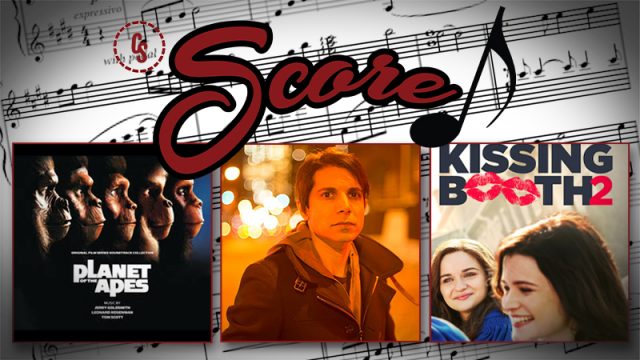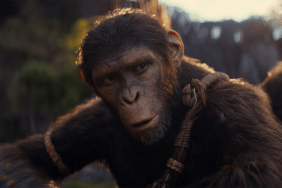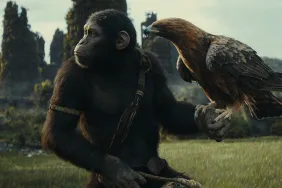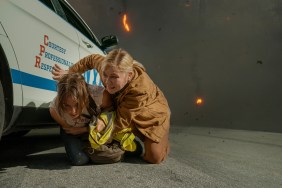We’re back with another round of CS Score, folks! This week we’re taking a look at the massive Planet of the Apes: Original Series Soundtrack Collection from La-La Land Records, 20th Century Fox, Fox Music, and Varèse Sarabande, as well as unveiling two exclusive tracks from Netflix’s The Kissing Booth 2 soundtrack, and presenting an interview with composer Simon Taufique, who discusses his score for the upcoming HBO documentary Weight of Gold. Enjoy!
Exclusive: Listen to Two Tracks from Patrick Kirst’s The Kissing Booth 2
ComingSoon.net is pleased to unveil two exclusive tracks from the soundtrack to Netflix’s The Kissing Booth 2 by composer Patrick Kirst. The tracks on display are quite lovely! Have a listen to them in the players below. (No release date for the official soundtrack has been set as of now.)
Here’s some info about the score:
For The Kissing Booth 2, director Vince Marcello encouraged composer Patrick Kirst to score out of his comfort zone and play into the romantic moments to really nurture those heartfelt scenes. The resulting score is an eclectic mix of music that reflects the nostalgia of ’80s John Hughes rom-coms, California beach vibe, and modern instrumentation, including plucked and muted guitars, electric cello, plucked harp, and synthesizers of the 80s.
Patrick Kirst: “Following Elle’s, Noah’s and Lee’s journey led to further developing their themes from the first installment. I wanted to embody director Vince Marcello’s concept of recapturing a nostalgic, sun-kissed vision of late 1970/80s vintage Los Angeles. We, therefore, decided to give the score vintage retro charm through strings, 80s synths, beach drums, and guitars. The score embodies the soul of the movie: a fun, heartfelt, youthful, and sincere story about love, coming of age, and true friendships.”
Planet of the Apes: Original Series Soundtrack Collection
Jerry Goldsmith, Leonard Rosenman, Tom Scott
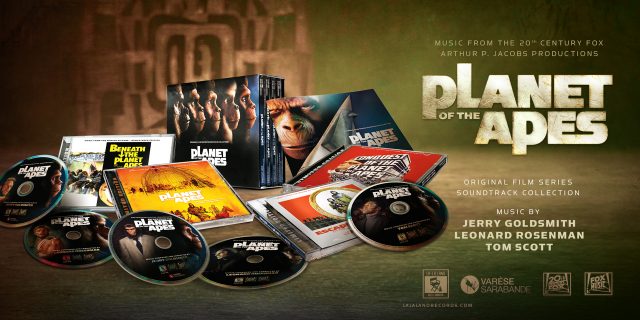
Purchase the Planet of the Apes: Original Series Soundtrack Collection by clicking here!
Planet of the Apes remains one of the great science fiction film series. Since the original’s release back in 1968, a number of sequels (with varying degrees of quality), a short-lived TV show, a Tim Burton flick, and a rebooted trilogy have come and gone, with each offering their own unique take on the brand name. Each of these efforts draws top-notch talent, particularly in terms of film composers where the likes of Jerry Goldsmith, Leonard Rosenman, Tom Scott, Danny Elfman, and Michael Giacchino have contributed their unique abilities.
Thankfully, this box set, presented by La-La Land Records, 20th Century Fox, Fox Music and Varèse Sarabande, and released in 2019, gives film music enthusiasts a chance to enjoy the scores for Planet of the Apes franchise, including Planet of the Apes (1968), Beneath the Planet of the Apes (1970), Escape from the Planet of the Apes (1971), Conquest for the Planet of the Apes (1972) and Battle for the Planet of the Apes (1973). Sadly, none of the newer Apes film scores are included, nor is the short-lived television series, but that doesn’t make this box set any less memorable.
Of course, the real gem in the collection is Goldsmith’s remastered work for the original film, which utilizes exotic percussions and bizarre sounds to deliver a colorful score that carries many of the same elements the composer would use a decade later for Ridley Scott’s Alien.
Notably, considering the content, Planet of the Apes is actually quite surprising in its sparsity as it aims to underscore the bizarre nature of this apes world with brief piano cues, percussion, and unique sounds emulated by a shofar, a ram’s horn, a bass slide whistle (an instrument, the linear notes tell us, was likely created for this score), a scraped gong, log drums, rattling bamboo angklungs, boobams, an electric harp ran through a tape-delay device known as an Echoplex, and a cuica. In fact, Planet of the Apes is devoid of a singular main theme and instead relies on these unique sound designs to propel the narrative.
“The Hunt,” for example, a bombastic (and now iconic) piece of action mixed with elements of horror that plays over the moment in which humans are hunted by the titular apes. Goldsmith employs woodwinds, plucked strings, piano, and drums to fuel the cue, which many consider one of the great musical pieces ever concocted for cinema. “No Escape” leans on the thrilling orchestra, snare drum, and frantic piano for the dramatic moment in which astronaut George Taylor (Charleston Heston) flees from his prison cell and, upon his capture, memorably exclaims, “Take your stinking paws off me you damn dirty ape!”
Darker tracks such as “A New Mate” and “The Trial” are more atmospheric in design as our main heroes must deal with the hopelessness of their situation, while “A Bid for Freedom” features a more playful, though menacing, trumpet march as Taylor joins with Zira to escape his prison compound.
The soundtrack closes on a dark note in “The Revelation/Finale” as Taylor rides off towards his fate and eventually happens across the Statue of Liberty — a popular twist that arrives sans music, which, the track notes explain, remains “a hallmark of Goldsmith’s instinctive understanding that music can only have power if there are also key moments where it is absent.”
The series shifts to Beneath the Planet of the Apes (also available to order here) featuring music by Leonard Rosenman, who supplies the otherwise bland follow-up to the classic original with an ominous score that serves as a worthy follow-up to Goldsmith’s masterwork — even if it lacks originality. Highlights include “Captured,” which begins quietly but evolves into a series of wild drums and a frenetic trumpet line; and “Second Escape,” where Rosenman uses electric guitar sound FX to punctuate the action.
Escape from the Planet of the Apes (also available to order here) took the series in a more comedic direction as Cornelius and Zira flee the destruction of their planet and subsequently travel back in time to present-day London with their child. Goldsmith returned to score the threequel, and, right from the get-go, infuses the series with a more bombastic, pop-filled sensibility. The music evokes Goldsmith’s lighter work of the era, though tracks like “The Gorilla Attack” and “Interrogation” do indeed revel in the darker aspects of the film. Softer melodies are heard in “I Like You,” “Labor Pains,” and “Mother and Child,” but such cues are so abrupt the music never fully registers. In fact, the soundtrack length for Escape totals a brief 31 minutes. While the music is fun, especially when contrasted with Rosenman’s much darker score for “Beneath,” there really isn’t much here beyond a few bombastic Goldsmith-esque cues such as “The Labor Continues” to qualify this as anything more than a slight entry to the franchise.
The final CDs feature Tom Scott’s jazz-centric score for Conquest for the Planet of the Apes (also available to order here) and Leonard Rosenman’s action-packed Battle for the Planet of the Apes (also available to order here). Each of these brings a unique sensibility to the franchise, though your enjoyment of the music presented will depend on what you expect from an Apes score. We’re clearly a long way from Goldsmith’s original music at this point, though Scott and Rosenman continue to emphasize exotic drumbeats and colorful instrumentation over the thematic structure.
All told, this box set delivers everything Ape fans could possibly hope for and then some. The soundtracks are presented in excellent quality, while the linear notes provided offer intriguing insight into the film productions for each installment as well as a detailed breakdown of the scores themselves. And while Goldsmith’s score for Planet of the Apes stands out amongst the rest in terms of true originality, the other soundtracks are just as engaging in their own right.
Interview with Simon Taufique, Composer of HBO’s The Weight of Gold
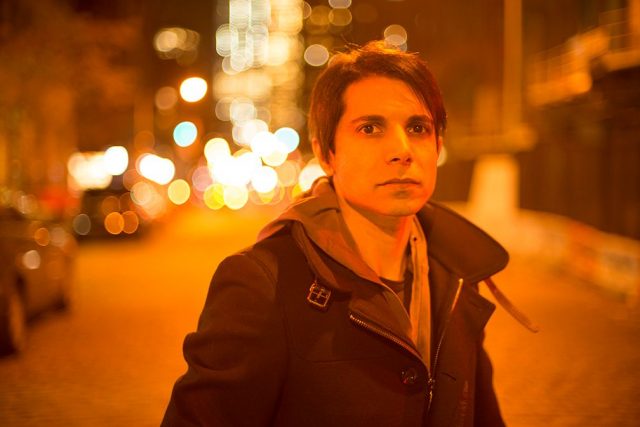
The Weight of Gold: Trailer Premieres July 29
The Weight of Gold is an HBO Sports documentary exploring the mental health challenges that Olympic athletes often face. The film comes during a time when the COVID-19 pandemic has postponed the 2020 Tokyo Games — the first such postponement in Olympic history — and greatly exacerbated mental health issues.
ComingSoon: Thanks for reaching out to us, by the way. Really appreciate it. Can you talk about the upcoming HBO documentary that you’ve been working on? What is it about and how did you get involved?
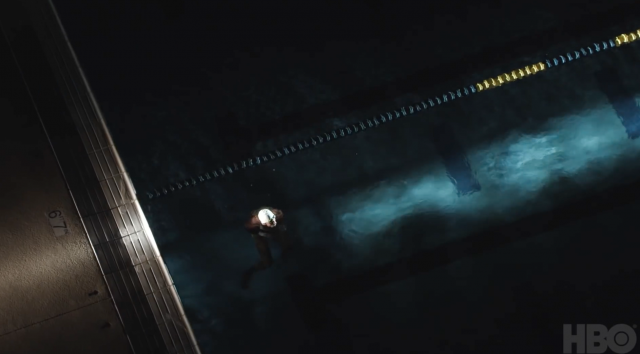
SIMON: Sure. It’s called the Weight of Gold, and it’s about the struggle that Olympians face when the spotlight fades and the training and the goals have been met and they’re left to figure out what to do with the rest of their lives when they have been training and preparing to win these amazing contests of athletic bravery and supremacy. And then once they’ve accomplished that, they haven’t had the support or the preparation to go out and live the rest of their lives. And so, in the absence of that kind of real-world preparation, they find themselves really lost for purpose and for direction and meaning in their life. And a lot of them will suffer severe depression and suicide. So, it’s a revealing account of what these amazing people experience when that happens to them.
CS: How did you ultimately get involved with the project?
SIMON: I’ve always been interested in these stories of reaching above ourselves and overreaching and overdelivering and excelling at whatever it is that you find is your purpose and your expertise. And so, I’ve always been drawn to those kinds of stories.
I’ve worked Ellyn Vander Wyden, the producer before. And so, when they were looking for a composer for this project, she told me about what the story was and that she was working with Brett Rapkin, the director. And so, I was very interested in helping in any way I could. And so, we started talking about what their vision for the film was. And how to unveil this problem and this epidemic of depression and mental health challenges that no one has really been made aware of. We don’t expect that people who we think have essentially won the lottery are now facing depression. So, I was very intrigued and really supportive of getting that message out. If I could help tell that story through music, it was game on for me. And we talked right before the pandemic wave came into New York. And then when the pandemic hit, it shifted from just the story about the challenges that these athletes face when something unexpected happens in their life, which is this seismic shift in their life, and then realizing that we are all facing that seismic shift in our lives due to this external force that we didn’t plan for. And we’re facing the kind of stress and the kind of uncertainty that so many of these athletes face. But in a completely different context.
So, in writing the music for this film, I was immediately drawn into the mental state and the emotional state of what these athletes go through, even though it was for a different reason, a different context. But it was a very strange parallel experience.
CS: Talk about the scoring process – do you immediately get an idea in your head when you hear the synopsis for the film?
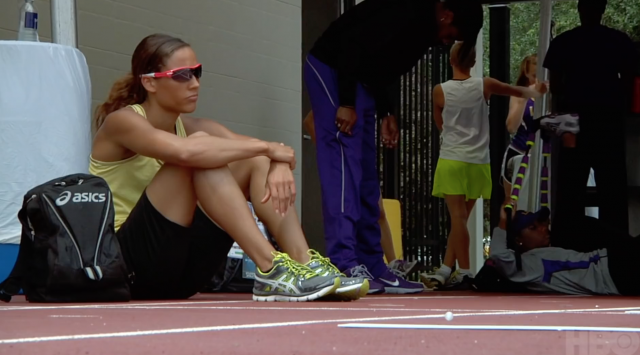 SIMON: I don’t. It’s not immediate. It evolves through a collaborative collaboration between myself, the director, the producer, in this case, also the editor. And it’s this conversation that we’re having. So, it’s like being in a band and in the band.
SIMON: I don’t. It’s not immediate. It evolves through a collaborative collaboration between myself, the director, the producer, in this case, also the editor. And it’s this conversation that we’re having. So, it’s like being in a band and in the band.
There is this give and take and you’re feeding off of each other’s energies and their ideas and their inspiration. So, it was very much like that kind of experience of trying to help tell the story, this unified story that we are all agreed that we want to — that we want to put out there in the world. But at the same time, we each have our own different take on what is the focal point of that story. Which athlete is the story that most resonates with you? Which aspect of the story is the most hard-hitting for you or the most tender? We evolved. What’s that supposed to sound like and feel like? And so, the feeling is actually the first thing that comes to mind is what am I feeling when I watch this? And when I experience the story? And then how can I support that and continue to tell that story through music to enhance that feeling. And it’s that kind of dialogue of being able to reach into each other’s experience and say, what is it about the story that that’s most connecting to you? And what is the aspect of that story that you want to be told that maybe can be further enhanced or further supported or put a spotlight on to the music?
CS: How did the sudden shift in the focus of the documentary affect your score?
SIMON: It was complicated because the pandemic was not a part of the story. At that point, we didn’t know if this was going to be a short-lived environmental viral societal change. So, it was a question mark. How is this going to affect the story and also is it going to affect the Olympics? Because this is very much a story about Olympians and the Olympics as this event that they’ve all spent their life gearing up towards. And so, we were gearing up towards that event as well, of course, in a much more compressed timeline. But that was very much what we were aiming for, to launch this in support of the Olympics and also to put a real spotlight around this issue while so many people are focused on this great event. And with that as a question mark, is it going to be canceled, or is it going to be postponed or how is that going to affect when we should be finished with this and how that should affect the story? The story was shifting in real-time. And there’s also this question of I’m in New York and I was in the heart of the epicenter of the virus and then the riots. And so, there is that sense of urgency and dread and stress every day, every hour of working on this.
And yet there is also this sense of stress and dread that these athletes were trying to communicate in their accounts. It was pounding that until also realizing that we don’t want to just project what we’re feeling based on our experience of what’s going on in the world and make this into a much more dramatic or horrific or depressing story than it needed to be. It is a story of challenge, but it is also a story of how these athletes found their way through that serious challenge of depression and feeling suicidal and feeling hopeless and all these things that that they are talking about. So, we didn’t want to hijack their story with our own experience. That was one thing, and then, of course, you’re also thinking about your audience and you also don’t want to compound what their experience of these worldwide events is like for them. And that was also a question of are we are making things feel much more difficult for people as they watch this? How do we tell a story? A challenge in the challenging time.
CS: Do you ultimately feel like the result was better than it would have been originally?
SIMON: Actually, yes. I think the film is much better than what we started off with, without question. I think it created a sense of urgency that couldn’t be manufactured. It couldn’t be overdramatized because the stakes of mental health challenges are now readily apparent to everybody. People are suffering from so many issues as a result of being isolated, as a result of feeling like their worldview is shifting because of job loss and economic hardship and also just the existential. How does the world recover from a viral pandemic? Those questions of our mortality, our livelihood, our power, our happiness, once when an event. It happens and also when it lifts, hopefully, will before too long. What comes after that? And do we have the answers to that? Do we have the coping mechanisms to deal with getting through this? To the other side? And those are the kind of questions that these Olympians are talking about.
 And now you’re watching it in a much more way that’s relevant to our experience. And when we hear their stories, it really connects in a way that it might not have in the absence of world events. So, my wife works in mental health and I get to experience a lot of that communication. I felt like I’ve been in this world of understanding or at least having exposure to these kinds of mental health issues for a long time. But I’m not at all part normal in that way. And that’s a privilege to be able to get that exposure. But I realize that most people don’t have that. And so, when I watched it the first time, I. I immediately connected and felt a bond with these athletes talking about these challenges, but I realize that this is not something that is readily apparent to a lot of people who might not have had exposure to psychologists or therapists or any mental health expert who can educate us about what these issues are and how it’s an illness and how there are events that trigger things and how to cope through it. So. By the end of this process, now I see so many people and so many people talking about these kinds of issues that I know that something has changed in our capacity for it and also our need for understanding because so many people are experiencing this now.
And now you’re watching it in a much more way that’s relevant to our experience. And when we hear their stories, it really connects in a way that it might not have in the absence of world events. So, my wife works in mental health and I get to experience a lot of that communication. I felt like I’ve been in this world of understanding or at least having exposure to these kinds of mental health issues for a long time. But I’m not at all part normal in that way. And that’s a privilege to be able to get that exposure. But I realize that most people don’t have that. And so, when I watched it the first time, I. I immediately connected and felt a bond with these athletes talking about these challenges, but I realize that this is not something that is readily apparent to a lot of people who might not have had exposure to psychologists or therapists or any mental health expert who can educate us about what these issues are and how it’s an illness and how there are events that trigger things and how to cope through it. So. By the end of this process, now I see so many people and so many people talking about these kinds of issues that I know that something has changed in our capacity for it and also our need for understanding because so many people are experiencing this now.
CS: What is the one aspect of the score that you’re most proud of or that you’re most excited for people to hear and listen to?
SIMON: That’s a good question. I think its initially … part of the motivation around the music was to communicate distress, the ongoing persistent stress that these athletes feel. Leading up to these events and then the stress of what comes after that. That feeling of unease never really goes away. And that was part of what we were trying to communicate with the music. And yet, we don’t want to turn this into a horror movie. We don’t want this to be this experience where you’re at the edge of your seat the whole time. And so, I think I’m proud of how some of the pieces evolved so that we got to not only feel their stress but also their ability to let go and to experience things as they were happening in real-time of violation of winning. The tragedy of falling short and then also that relief of regardless of what happened, whether I won the gold or I didn’t — it’s over.
I made it through this experience and I’m able to let go of that and to think about what comes next and to feel pride in what I’ve been able to accomplish to get to this point. And when the music is able to take us on that journey with them, that emotional journey. Those are the moments I’m most proud of because I’m not manufacturing an emotion that’s not there. I felt like I was trying to go alongside them in that visceral and emotional experience of this once in a lifetime experience of making it to the Olympics. So those are the moments I really cherished in scoring this. And when watching it again, those are the moments that hit me the best.
I’m just I’m very proud of what the team has put together. It’s been a challenging ride to make it through and to work on this in the midst of a pandemic and stay focused on this kind of story. I’m really proud of what we’ve all been able to do together in our separate parts of the country and the world, because usually, this is a process that we’re able to do in the same room, feeding off of each other’s body language and energy. And yet we were able to do this geographically separated and isolated and yet still be able to end up with what we’ve done, I think is a wonderful accomplishment. So, I’m very proud of what we’ve all done together.
